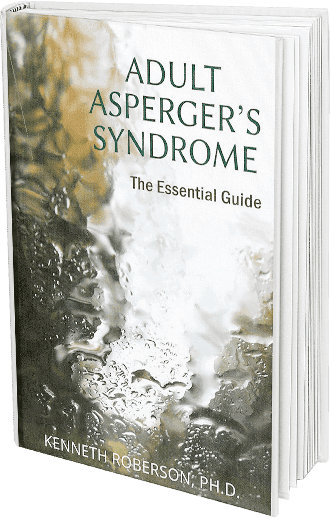
Studies show that Autism Spectrum Disorder (ASD) is one of the fastest growing mental health conditions in the United States. Upwards of 2,000,000 adults are likely to have been diagnosed with this condition, close to a 100% increase in the last decade. Some say ASD has reached epidemic proportions in this country.
Autism Spectrum Disorder (ASD) is similar to autism with one primary difference: autism causes delays in language development whereas Autism Spectrum Disorder does not. People with Autism Spectrum Disorder may have unusual speech patterns or may speak without inflection, as though the emotional content is missing, but their language skills are normal. In most other respects, autism and ASD share similar features.
In my work as an Autism psychologist, I’ve been asked many times to describe what ASD is like in adults. Here are the main characteristics:
Poor Empathy
Adults with Autism Spectrum Disorder have difficulty comprehending or communicating feelings. It’s not that they are incapable of emotions; in fact, Hans Asperger, the Austrian pediatrician who first studied this condition, believed those with ASD were capable of very strong feelings. It is more a problem of being cut off from emotional experiences.
Adults with Autismhave trouble distinguishing feelings from thoughts, and because they find it hard to recognize their own feelings, they focus on what they do recognize: reasoning.
This difficulty with identifying feelings makes it hard for someone with Autism Spectrum Disorderto relate to others. The ability to recognize what other people mean to say by their gestures is either absent or poorly developed, making it easy for someone with ASD to misunderstand others.
Social Isolation
People with Autism Spectrum Disorder tend to focus on their own personal interests, without seeing the needs and wishes of others. This often causes them to lead isolated lives.
Others see this behavior as self-centered or insensitive, but what causes people with ASD to focus on themselves are their difficulties with reading body language and facial expressions as well as the challenges they experience in picking up the rules of conversation.
This is not to imply that people with ASD don’t desire social contact. In many cases, they crave company and stick close to others.
Intellectualization
Because adults with Autism Spectrum Disorder tend to be cut off from their feelings, they acquire facts and information without understanding how those facts can be applied to real-world situations.
They are detail oriented, often missing the overall picture, and they apply the same level of detail to every situation whether appropriate or not.
Individuals with ASD often have an intense interest in one or two narrow topics, bordering on obsession. Stamp collecting, song lyrics, and computer puzzles can become focal points in their need to collect and organize facts, which is comforting to people with Autism.
Because of their focus on reasoning and intellect, many adults with Autism Spectrum Disorder make great intellectual contributions. Recent reports of highly successful professionals in Silicon Valley suggest that a high proportion of them have tendencies that lie within the ASD range.
Physical and Sensory Difficulties
Children diagnosed with Autism Spectrum Disorder are often delayed in their physical and sensory development. These difficulties persist into adulthood. Coordination that is required for actions such as walking, swimming, and riding a bike develops later for people with ASD. Fine motor skills like handwriting or tying shoes can be difficult for adults with Autism.
Sometimes, individuals with Autism Spectrum Disorder demonstrate repetitive behaviors, such as rocking back and forth or flapping their hands. Some are sensitive to sounds, smells, bright lights or the sensation of clothing against their skin.
Treatment for Adults with Autism Spectrum Disorder
Adults with Autism Spectrum Disorder who are willing to work at it can benefit from treatment. As an Autism psychologist, I have seen many adults with ASD who lead successful, fulfilling lives.
Those who have a good understanding of their strengths and weaknesses can develop helpful coping skills. Their ability to reason and focus provides a model through which they can learn to relate to others, adopt appropriate social behaviors and develop close friendships and intimacy.
Many more people would seek professional help if they knew that Autism Spectrum Disorder can be treated successfully. Working with an Autism psychologist is a key component to the successful alleviation of the struggles that cause so much distress for so many people. Help is really not that far away.
If you believe you have Autism Spectrum Disorder or know someone who does, it makes sense to seek help from someone with extensive experience in treating Autism.




